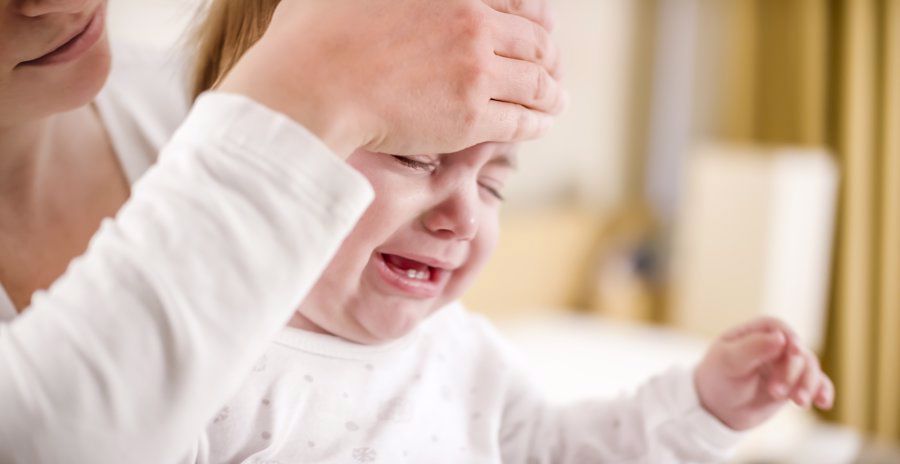It can be difficult to tell when your little one is seriously ill, but the main thing is to trust your instincts. As a mother you know when something is wrong and your child is not behaving normally.
Here's a checklist of warning signs that might be serious:
Temperature
- a high temperature, but cold feet and hands
- a high temperature that doesn't come down with paracetamol or ibuprofen
- your child is quiet and listless, even when their temperature is down
- a high temperature in a baby less than 8 weeks old
Breathing
- rapid breathing or panting
- a throaty noise while breathing
- your child is finding it hard to get their breath and is sucking their stomach in under their ribs
Other signs
- blue, pale, blotchy, or ashen (grey) skin
- your child is hard to wake up or appears disorientated or confused
- they're crying constantly and you can't console or distract them, or the cry doesn't sound like their normal cry
- green vomit
- your child has a fit (convulsion or seizure) for the first time
- your child is under 8 weeks old and doesn't want to feed
- nappies that are drier than usual – this is a sign of dehydration

If your child has any of these signs, get medical help as soon as possible:
- during the day from Monday to Friday – it's best to call your GP practice
- evenings and weekends – call NHS 111
- if your baby is under 6 months old it's hard for a doctor or nurse to assess them over the phone – you can go to an urgent care (walk-in) centre or, if you're very worried, take them to accident and emergency (A&E)
When to call an ambulance
Call 999 for an ambulance if your child:
- stops breathing
- won't wake up
- has a spotty, purple-red rash anywhere on the body that doesn't fade when you press a glass against it – this could be a sign of blood poisoning (septicaemia)
- is under 8 weeks old and you're very worried about them
- has a fit for the first time, even if they seem to recover
- has a severe allergic reaction (anaphylaxis)
- if you think someone may have seriously injured your baby
Again, trust your instincts. You know what's different or worrying behaviour in your child.
Articles shown are a mixture of informative pieces, anecdotal accounts and professional advice from our panel of Bloggers, Writers and Experts. The views and opinions expressed in these articles are those of the authors and do not necessarily reflect the official view of this site.




